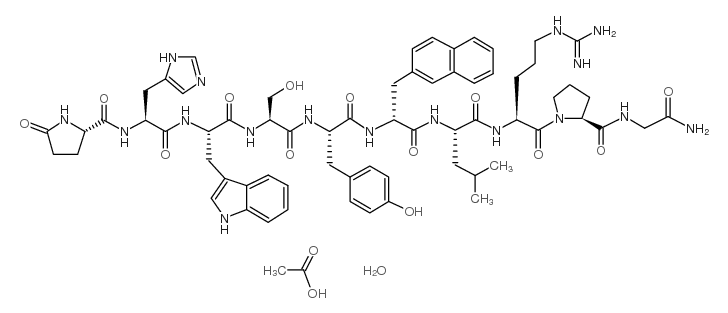A case of progesterone-induced anaphylaxis, cyclic urticaria/angioedema, and autoimmune dermatitis.
I Leonard Bernstein, David I Bernstein, Zana L Lummus, Jonathan A Bernstein
Index: J. Womens. Health (Larchmt.) 20(4) , 643-8, (2011)
Full Text: HTML
Abstract
Women have exhibited anaphylaxis, urticaria/angioedema, and autoimmune progesterone dermatitis (APD) coinciding with the progesterone premenstrual rise. We report a detailed immunological evaluation of such a woman responsive to a gonadotropin hormone-releasing agonist (GHRA).Skin testing, enzyme-linked immunosorbent assays (ELISAs), leukocyte histamine release (LHR), and inhibition assays were performed to demonstrate progesterone immunoresponsiveness.Serum specific-progesterone immunoglobulin G (IgG) and IgE were detected initially and disappeared 6 months after GHRA treatment. Dose-response LHR using patient basophils was observed for different hormones but after 3 months persisted only for 5β-pregnanediol. Preincubation with mouse antiprogesterone monoclonal antibody (PmAb) or mifepristone, a progesterone inhibitor, over a range of doses inhibited specific progesterone-induced LHR. Experiments with varying progesterone concentrations and a fixed dose of anti-IgE resulted in 100% LHR at a concentration as low as 0.016 nmol/mL, which, without anti-IgE, failed to release histamine.This is the first report of combined recurrent anaphylaxis, cyclic urticaria/angioedema, and APD induced by immunoresponsiveness to progesterone.
Related Compounds
| Structure | Name/CAS No. | Molecular Formula | Articles |
|---|---|---|---|
 |
nafarelin acetate
CAS:86220-42-0 |
C68H89N17O16 |
|
Spontaneous reports of seizure in association with leuprolid...
2013-05-01 [Obstet. Gynecol. 121(5) , 1107, (2013)] |
|
[Application of Pfizer drugs in the obstetrics and gynecolog...
2009-01-01 [Akush. Ginekol. (Sofiia.) 48 Suppl 1 , 41-4, (2009)] |
|
[Some possibilities for application of Pfizer medicines--Pro...
2008-01-01 [Akush. Ginekol. (Sofiia.) 46 Suppl 2 , 57-60, (2007)] |
|
Controlled delivery of a GnRH agonist by a silastic implant ...
2009-07-01 [Reprod. Domest. Anim. 44 Suppl 2 , 79-82, (2009)] |
|
Prospective randomised trial comparing gonadotrophin-releasi...
2009-04-01 [BJOG 116(5) , 681-7, (2009)] |